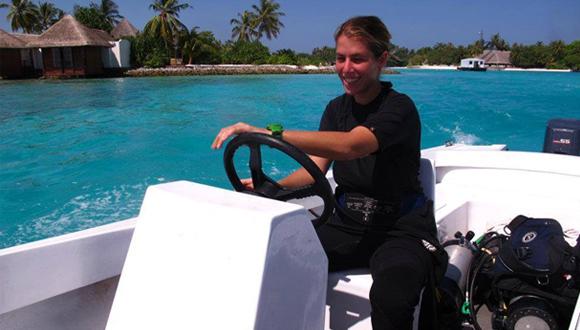דוקטורנטים מספרים - Tal Amit
Assessing the Role of Invasive Bivalves in Controlling Ecosystem Dynamics as a Tool for Better Management of Israeli Marine Reserves and Marine Protected Areas
Tal Amit
Supervisor: Prof. Yossi Loya
I am a Ph.D. candidate in my third year, working on invasive species in the Mediterranean Sea, and their effect on the local ecosystem. The Mediterranean Sea, and especially its Levantine basin and the Israeli shore, are undergoing a rapid and unprecedented rate of marine bio- invasions. In the case of bivalves, all dominant species in the rocky habitat of Israel are migrants.
The current scientific basis for the management of Mediterranean Marine Protected Areas (MPAs) relies mostly on inventory lists and community composition surveys, whereas studies of the ecological role of the different community members are severely lacking. This dearth of critical ecological information hinders educated decision-making as outcomes of management actions are impossible to predict. While invasive bivalves now dominate the benthic community of Israeli hard substrate, it is currently unknown to what extent they impact ecosystem services. That is, my research investigates how currently unknown processes such as habitat modification and mass transfer to primary producers and to higher trophic levels can impact more visible issues such as local biodiversity and water quality. To address these knowledge gaps, my Ph.D. combines manipulation experiments, surveys, and in situ studies of bivalves’ ecophysiology in order to predict and model processes such as bivalves’ growth, carrying capacity, ecosystem dynamics, and impacts on biodiversity. To avoid the inherent biases associated with laboratory confinement of sensitive tropical species, I perform most of my work in situ, with undisturbed animals in their natural habitat. The unique contribution of the proposed study is the application of previously developed methods and innovative approaches to examine in situ, with unprecedented accuracy and resolution, the full metabolic profile of undisturbed invading bivalves in their natural settings.
The final goal is to provide an assessment of the loss of ecosystem services associated with invasive bivalve regulation. Another aim is to offer clear recommendations for actual management actions and suggestions for future research and monitoring of such actions. Taken together, our data should provide decision makers and managers with educated predictions and recommendations for the management of the bivalve populations in the Israeli MPAs.


